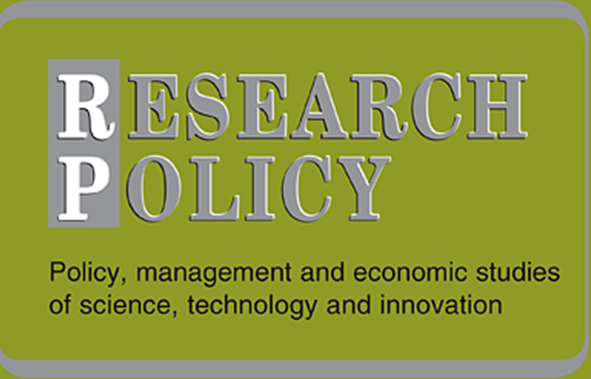https://www.sciencedirect.com/science/article/pii/S0048733325000691
Regarding the recently published paper in the Elsevier journal Research Policy, "Academic Inbreeding and Productivity of STEM Early Career Researchers in Different Environments" I feel compelled to express my disappointment with the emphasis placed on productivity. In my view, this approach risks oversimplifying the complex issue of academic inbreeding.
Enviado: 17 de abril de 2025 09:32
Para: F. Pacheco Torgal
Assunto: RE: Paper - "Academic Inbreeding and Productivity of STEM Early Career Researchers in Different Environments,"
Dear Pacheco Torgal,
Thank you for your attention to my article on academic inbreeding.
Firstly, I totally agree that bibliometric indicators have their limitations, and they poorly reflect the innovativeness of research. Other indicators should be investigated as well.
Secondly, it is impossible to disagree with you, that practice of academic inbreeding may be often based on non-merit principles, and related to nepotism and corruption. However, there are many other reasons for academic inbreeding.
For example:
1) low level of competition in the academic labour market due to the specificity of the system (high level of centralisation, so that many universities may have limited opportunities to attract good external candidates),
2) difficulties in recruiting external candidates because the university is located far away from all other academic organisations, or because an institute is focused on a specific narrow field, or because it is an elite university that finds it difficult to find a sufficiently qualified candidate from the outside,
3) low level of mobility due to the size of the country (as in Russia), high relocation costs, family issues,
4) or the mindset that "every sandpiper is great in his own swamp", which is quite common among Russians, and they do not feel the need to try out for other organisations or cities.
5) finally, inbreds may become researchers who are not in demand on the external academic labour market if their alma mater does not care about the quality of its personnel or cannot care about it due to lack of various resources.
It is not clear which of the above reasons is more widespread. Indeed, the factors of academic inbreeding are understudied. And they need further investigation.
My study only partially supports two of these reasons: inbreeding is more prevalent in more prestigious academic organisations and in regions with a poor academic labour market. My data also showed that less productive (in terms of number of Scopus-indexed papers) researchers often become inbreds in mass universities, while leading universities and research organisations tend to hire their own graduates who are more productive than those who left their alma mater (though these results are outside my recently published paper and I am still working on them). This partly supports the ideas about prestigious organisations and resource-poor organisations.
Each of these reasons may affect researchers’ performance in different way. It is a large task to study all these inbreeding factors, and an even greater challenge to assess the effect of inbreeding in any given case.
I continue to study academic inbreeding, as it is also very widely practiced in Russia. I appreciate your opinion and I would like to consider as many aspects of inbreeding as possible. I will try to address other issues that could be affected by academic inbreeding, as well as factors of this phenomenon.
Best regards,
Victoria Slepykh
